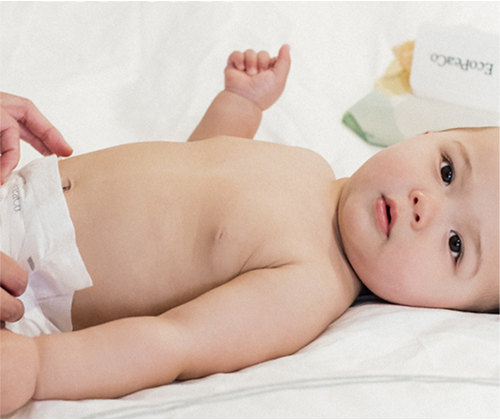The first year of your baby's life is full of change and discovery, marked by an astonishing array of developmental milestones. From their first moments in this world to their first birthday, the transformation your baby undergoes is nothing short of remarkable. As parents, witnessing these milestones unfold is both awe-inspiring and profoundly rewarding.
In just twelve short months, your baby will evolve from a delicate newborn into a curious, active explorer of their surroundings. Each day brings new achievements and milestones, from mastering the art of holding their head up to taking those tentative first steps.
Understanding and celebrating these milestones is crucial not only for tracking your baby's progress but also for fostering their development and forming a deep bond with them. Let’s explore the milestones that shape your baby's first year and the changes that occur along the way.
Understanding Baby Milestones in the First Year
In the first year of your baby's life, they will achieve a multitude of milestones, each marking a significant step forward in their journey towards independence and understanding.
These milestones encompass various aspects of your baby's development, including physical, cognitive, and social milestones. Here's a brief overview of some of the key milestones your baby may reach during their first year:
Physical Milestones:
- Lifting head: In the early weeks, your baby may start to lift their head briefly while lying on their tummy, building strength in their neck muscles.
- Rolling over: Around 4 to 6 months, many babies begin to roll over from their back to their tummy and vice versa, showcasing increased mobility.
- Sitting up: By 6 to 8 months, some babies can sit up with support, gradually gaining balance and control over their movements.
- Crawling and standing: Between 7 to 10 months, your baby may start to crawl on their hands and knees and pull themselves up to stand, signaling the beginning of a more active phase.
Cognitive Milestones:
- Tracking objects: From around 2 to 3 months, your baby's eyesight improves, allowing them to track moving objects and focus on faces.
- Babbling: Around 6 months, many babies begin to babble, experimenting with different sounds as they explore language.
- Object permanence: By 8 to 12 months, your baby starts to understand that objects continue to exist even when they are out of sight, a concept known as object permanence.
Social and Emotional Milestones:
- Social smiling: Around 6 to 8 weeks, your baby may start to respond to your smiles with smiles of their own, indicating the development of social bonds.
- Imitating gestures: From 9 to 12 months, your baby may begin to imitate simple gestures, such as waving goodbye or clapping hands, as they learn through observation and interaction.
These milestones provide a roadmap for your baby's development, offering insights into their progress and capabilities. While every baby develops at their own pace, it's essential to celebrate each achievement and provide support and encouragement along the way.

Baby Milestones by Month: A Detailed Guide
Each month with a new baby brings surprises and achievements, from the first tentative grasp to their first babble. While each baby is different, here is a general look at what you can expect for your baby’s development by month:
- Newborn (0-1 month): In these early days, your newborn is navigating a world of sensory stimuli. They may exhibit reflexes such as sucking, grasping, and startling in response to sudden sounds.
- 1-3 months: As your baby enters their second and third months, you'll notice remarkable changes. They'll start to track objects with their eyes, coo in response to your voice, and exhibit more intentional movements, such as bringing their hands to their mouth.
- 4-6 months: By the time your baby reaches the halfway mark of their first year, they'll likely be mastering the art of rolling over, sitting with support, and engaging in delightful bouts of laughter. They may also begin teething, signaling the onset of a new developmental phase.
- 7-9 months: Mobility takes center stage during this period, with many babies mastering the art of crawling and pulling themselves up to stand. Their babbling becomes more varied and may even resemble rudimentary words, while their curiosity about their surroundings knows no bounds.
- 10-12 months: As your baby approaches their first birthday, they may take their first tentative steps, marking a significant moment in their journey towards independence. They'll also become increasingly adept at fine motor skills, such as picking up small objects with their thumb and forefinger.
Supporting Your Baby's Development: Activities and Tips
As parents, we play a pivotal role in nurturing our baby's growth and development. From the gentle sway of a lullaby to the warmth of a cuddle, every interaction shapes their understanding of the world. In this section, we'll explore activities and tips designed to support your baby's development, fostering a bond that will last a lifetime.
- Tummy time: Encourage daily tummy time sessions to strengthen your baby's neck, shoulder, and arm muscles, laying the foundation for future motor skills.
- Reading together: Stimulate your baby's cognitive development by reading to them daily, introducing them to the rich world of language and storytelling.
- Sensory play: Engage your baby's senses through sensory play activities, such as exploring different textures, sounds, and colors.
- Social interaction: Foster your baby's social skills by exposing them to a variety of social settings and encouraging interactions with family members and caregivers.
Premature Babies and Milestones: What Parents Need to Know
Premature infants, born before 37 weeks of gestation, may require special attention when it comes to tracking milestones. Due to their early arrival, premature babies may reach milestones based on their adjusted age, accounting for the time they would have spent in the womb. Adjusted age refers to calculating your baby's developmental age by subtracting the number of weeks they were born prematurely from their chronological age. For example, if your baby was born four weeks early and is now six months old, their adjusted age would be five months.
It's important to remember that premature babies may reach milestones at a different pace than full-term babies, and there can be significant variability in their development. While some premature infants may catch up to their full-term peers quickly, others may require more time and support to reach certain milestones.
Consulting with healthcare providers, including pediatricians and specialists in neonatal care, is crucial for monitoring your premature baby's progress and addressing any concerns along the way. These healthcare professionals can offer guidance tailored to your baby's unique needs, providing reassurance and support as you navigate the complexities of premature birth and early childhood development.
As parents of premature babies, your love, patience, and advocacy play a vital role in supporting your baby. Celebrate each milestone achieved, no matter how small, and remember that every step forward is a testament to your baby's strength and resilience.
Common Concerns and When to Consult a Healthcare Provider
While developmental milestones offer invaluable insights into your baby's progress, every child is different. It's natural to have questions or concerns along the way. In this section, we'll address common concerns and offer guidance on when to seek support from healthcare providers, ensuring peace of mind.
Signs of Atypical Development: It's common for parents to worry about whether their baby is reaching milestones on time. While variations in development are normal, certain signs may indicate potential developmental delays or issues. Keep an eye out for persistent difficulties in areas such as motor skills, language development, social interactions, and sensory processing. If you notice significant delays or regressions in your baby's development, it's essential to consult with your pediatrician or a developmental specialist for further evaluation.
Variability in Milestone Achievement: Babies are unique individuals, and their developmental journeys reflect this diversity. While developmental milestones provide general guidelines for typical development, there is considerable variability in when babies reach these milestones. Some babies may reach certain milestones earlier or later than others, and this variability is entirely normal. Trust in your baby's individual pace of development and celebrate their progress, regardless of the timeline.
Parental Anxiety and Support: Parenting can be overwhelming, especially when it comes to navigating the uncertainties of baby development. It's common for parents to experience anxiety about whether they're providing the best possible care for their baby. Remember that you're not alone in your journey and reaching out for support can make a world of difference. Whether it's confiding in other parents, joining parenting groups, or seeking guidance from healthcare professionals, there are resources available to support you every step of the way.
When to Consult a Healthcare Provider: While many concerns about baby development are normal, there are certain situations where it's essential to consult with a healthcare provider. Trust your instincts as a parent and seek medical advice if you have any concerns about your baby's health or development. Some red flags that warrant prompt attention include:
- Lack of eye contact or social smiling by three months
- Inability to support their head by four months
- Not babbling or making vocalizations by six months
- Not sitting up with support by eight months
- No attempts at crawling or pulling up to stand by twelve months
Key Insights
Remember that each milestone reached is a testament to your baby's growth and resilience. From the first tentative grasp to their first steps, these milestones offer glimpses into the remarkable development unfolding before your eyes. Embrace the diversity of your baby's journey, celebrating their unique pace and achievements along the way.


